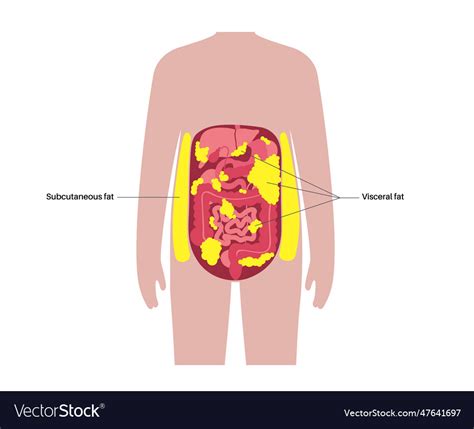Understanding Male Fat Distribution Patterns
The human body is complex, and how it distributes fat varies significantly between individuals, influenced by genetics, lifestyle, and crucially, sex. While women tend to accumulate fat around their hips, thighs, and buttocks (a pear shape), men typically store it around their abdomen, leading to an apple shape. This distinct difference is not merely cosmetic but is rooted in a combination of biological factors.
The Pivotal Role of Hormones
The primary driver behind this gender-specific fat distribution is hormones. Testosterone, the dominant male sex hormone, plays a critical role in directing where fat is stored. While testosterone helps build muscle, it also promotes fat storage in the abdominal region, particularly visceral fat—the fat that surrounds internal organs. Estrogen, on the other hand, which is dominant in women, encourages fat storage in the hips, thighs, and breasts. Although men also have estrogen, and women have testosterone, the differing ratios significantly dictate body fat patterns.
As men age, testosterone levels naturally decline. This shift can exacerbate abdominal fat accumulation, even if overall weight remains stable, as the body’s hormonal signals for fat distribution change.

Genetic Predisposition and Metabolism
Beyond hormones, genetics also play a substantial role. If your father or grandfathers tended to carry weight around their midsection, you are more likely to do so as well. Genetic factors can influence an individual’s metabolic rate, fat cell distribution, and the body’s response to diet and exercise, all of which contribute to where fat is preferentially stored.
Furthermore, metabolic differences contribute. Men often have a higher basal metabolic rate due to greater muscle mass, but their fat cells in the abdominal region tend to be more metabolically active and responsive to cortisol (the stress hormone), which can promote fat accumulation there.
Lifestyle Factors and Visceral Fat
While hormones and genetics lay the groundwork, lifestyle choices significantly impact the extent of abdominal fat. A diet high in refined carbohydrates and unhealthy fats, coupled with a sedentary lifestyle, alcohol consumption, and chronic stress, can accelerate abdominal fat gain. The fat stored in the abdomen is often referred to as visceral fat, which is metabolically active and surrounds organs like the liver, pancreas, and intestines. This is distinct from subcutaneous fat, which lies just under the skin.

The Health Implications of Abdominal Fat
The distinction between abdominal and hip fat is crucial for health. Abdominal fat, particularly visceral fat, is considered more dangerous than subcutaneous fat. It’s associated with a higher risk of serious health conditions, including type 2 diabetes, heart disease, stroke, certain cancers, and metabolic syndrome. This is because visceral fat releases inflammatory compounds and fatty acids into the bloodstream, impacting insulin sensitivity and contributing to systemic inflammation.

Addressing and Managing Abdominal Fat
While you can’t change your genetics or hormones entirely, managing abdominal fat is certainly possible and crucial for health. Effective strategies include:
- Balanced Diet: Focus on whole foods, lean proteins, healthy fats, and complex carbohydrates. Limit processed foods, sugary drinks, and excessive alcohol.
- Regular Exercise: Combine cardiovascular exercise with strength training. Cardio helps burn calories and reduce overall fat, while strength training builds muscle mass, which boosts metabolism.
- Stress Management: Chronic stress elevates cortisol levels, which can promote abdominal fat storage. Practices like yoga, meditation, and adequate sleep can help.
- Sufficient Sleep: Lack of sleep can disrupt hormones that regulate appetite and fat storage, leading to increased abdominal fat.

Understanding the physiological reasons behind male abdominal fat storage can empower men to make informed choices about their health. While an ‘apple shape’ is typical for men, maintaining a healthy weight and lifestyle is key to minimizing its associated health risks.





